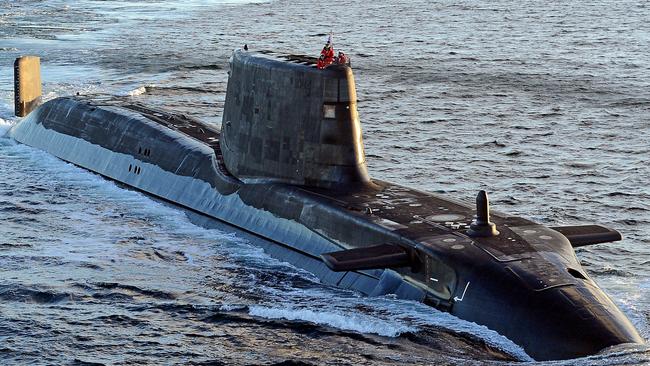
Beijing’s actions, therefore, are not only intimidatory; they are intensely irresponsible. They underline the accuracy of Scott Morrison and Peter Dutton repeatedly telling us we are living in a strategic environment as dangerous as the 1930s.
So this underlines the AUKUS agreement and the determination to acquire nuclear-powered submarines. Except that it doesn’t. The more we look into the AUKUS agreement, the more we see that its overriding practical consequence is this: for the next couple of decades at least, and probably quite a lot longer, Australia has determined it will have no submarine capability at all beyond our ageing fleet of six Collins-class boats.
If, God forbid, there were a big conflict in our region tomorrow, what could we do militarily? Maybe two of our six Collins boats would be available. If people claim the French attack submarines would have been floating coffins, that must surely be even truer of our Collins boats. We could dispatch two or three of our eight Anzac frigates. All of them are on their last legs. They are small combat ships with antique anti-ship missiles and eight vertical missile launchers. A typical Chinese ship has more than 100. Of our three Air Warfare Destroyers, at an extreme stretch we might manage to put two to sea at once. And if we could use US air bases far from home we could deploy some jet fighters and maritime surveillance aircraft.
That is, at best, an extremely modest – let me repeat, extremely modest – military contribution to any US effort. But it is also all we could muster in our own defence.
If the Americans are ever busy somewhere else, or lose interest in us, we could not defend ourselves against any competent opponent. After eight years of conservative government, and with all our thundering warnings about Beijing, we are, given that the Collins subs and the Anzac frigates have aged so much, arguably weaker militarily than we were eight years ago.
We have, to be fair, acquired the Joint Strike Fighter since then, so perhaps, militarily, if not environmentally, we’ve achieved net zero.
Peter Varghese, the former head of the Department of Foreign Affairs and Trade and one of our most brilliant international thinkers, wrote recently that while he strongly supported the US alliance, “it does not absolve us from having the capacity to defend ourselves … we have failed to acquire that capacity … Australian governments have never really believed we can adequately defend ourselves. Indeed, we have been quite clever in finding ways to ensure that if we ever face a direct threat the US will be there for us.”
Varghese is right. It is only in terms of symbolism with America that AUKUS really makes any sense. Its only likely military consequence is that US, and perhaps British, submarines will visit more often. One day the process may possibly yield nuclear-powered submarines from the US or Britain. And having $150bn to spend on their subs, even over many years, will keep us popular in Washington and London in the meantime.
Let’s be quite clear about this. French subs that actually existed in the physical universe, whatever their faults, would be a vastly superior capability to notional nuclear submarines that remain a twinkle in the planner’s eye for decades to come.
Partly as a result of the French making such a fuss, the world at first thought AUKUS was a big deal. In the first week, The Economist magazine ran a cover story on AUKUS. By week two, when it had caught up with reality a bit, it was running a snide little piece pointing out that Brazil will likely have nuclear-powered subs many years before Australia does.
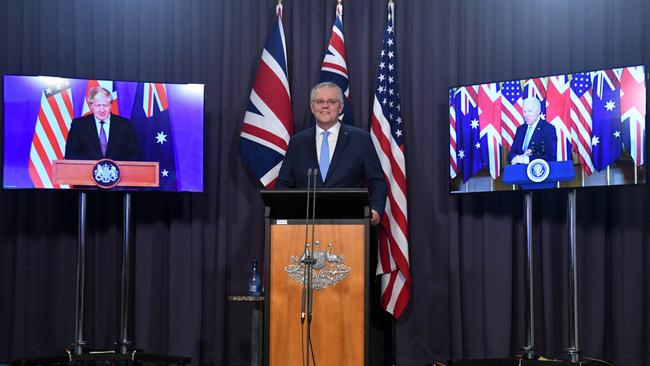
The debate in Australia has been completely unrealistic because almost no one has registered just what a massive undertaking getting nuclear-powered submarines is. Six nations today have nuclear-powered subs. They are the US, China, Russia, Britain, France and India. All six have huge domestic nuclear energy industries. All six have hundreds, or for the US and Russia thousands, of nuclear weapons.
The point is that before going into nuclear-powered submarines these nations all had huge nuclear-capable workforces. Yet each found developing nuclear-powered subs a long, slow, tortuous process. We, in contrast, start from nothing. Each of these nations also spent much more money over a very long period on defence than we do.
Marcus Hellyer of the Australian Strategic Policy Institute wrote recently that every time ASPI looked at the issue, it was clear Australia needed a new conventional sub as a bridge to the nuclear sub. It takes the Americans seven years to build a Virginia-class sub. It takes the Brits 10 years to build an Astute. The Brits had enormous troubles getting the Astute to work properly. And the Americans and the Brits know what they’re doing.
Yet the government claims we will build these mythical nuclear subs in Adelaide. Politely, Hellyer comments: “It’s hard to see how we do it in Adelaide on a schedule that stops Collins ageing out, or remotely on a price scale similar to the US.”
It will take us many, many years to build a capable workforce or to grow the number of our submariners to the scale we’ll need for eight nuclear-powered boats. But if we train them all in the next few years on American boats, they will have nothing to do for decades to come. I believe the only way we can get a capability inside a decade is to lease boats, but the US has none spare to lease. It is flat out building and refurbishing subs for itself. It has fallen well behind the Chinese in sub numbers and in any conflict the US has to meet its worldwide responsibilities while Beijing could focus all its resources in the Pacific.
I strongly support getting nuclear-powered subs. But one of the requirements of a nation getting nuclear-powered subs is that it be wealthy enough, and serious enough, to run conventional subs while it goes through the unavoidably slow and difficult business of getting the nukes.
There are some in the government who think the first nuclear-powered boat, even built in Adelaide, could come online in the late 2030s, and this is only a few years after the first French boat would have been available.
But Peter Jennings from ASPI estimates that if the French had been allowed to build the first couple of subs in France, we probably could have got the first into service by 2030 rather than 2033 or 2034, as was the latest estimate.
But the idea of an Australian-built nuclear-powered boat being available in the late 2030s is an extreme hyper-optimistic reading, surely totally unrealistic. And so much hangs on such implausible optimism. Not to mention all the ways the project could fall over politically before it reaches fruition. And none of this nuclear fantasy stuff helps us one bit over the next decade or two.
The Sheridan family had some wonderful news this week – the arrival of a new grandson, a fabulous young fellow. My only regret for him is that he is already too old to contemplate a career serving on Australia’s nuclear-powered submarine fleet.



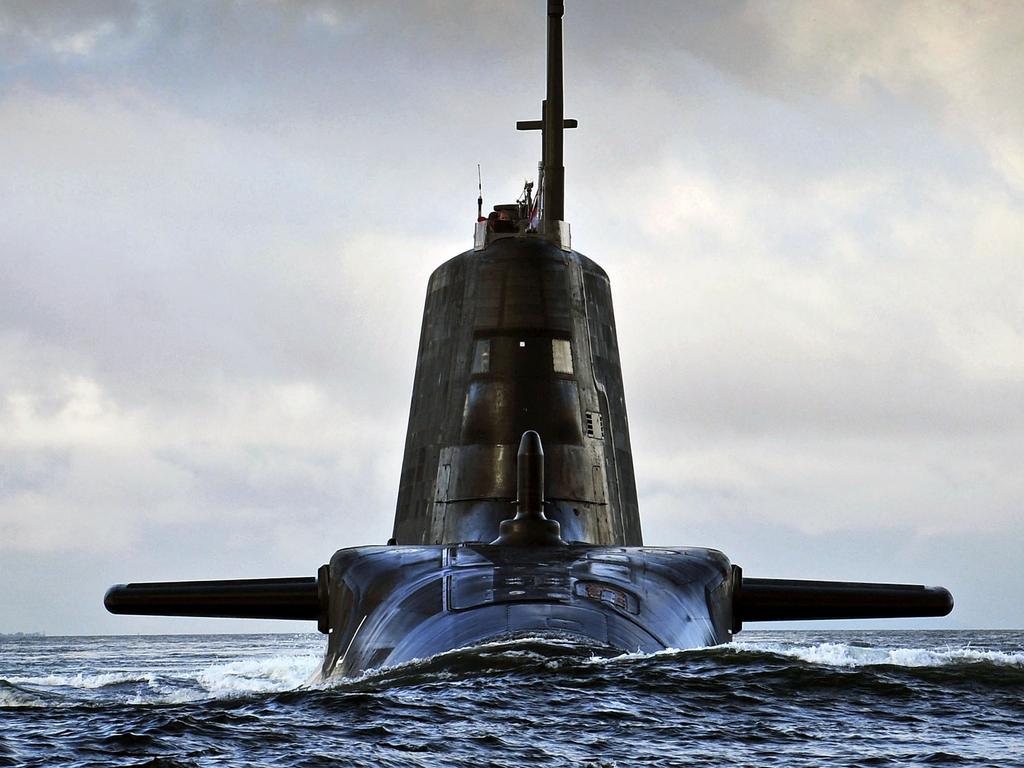
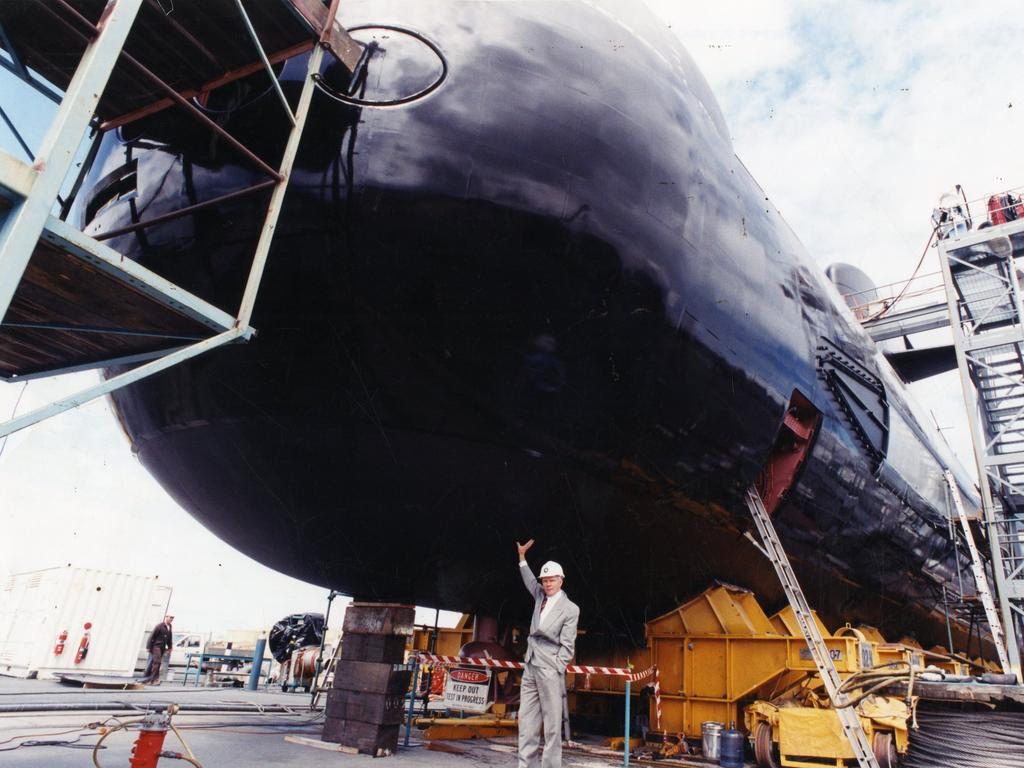
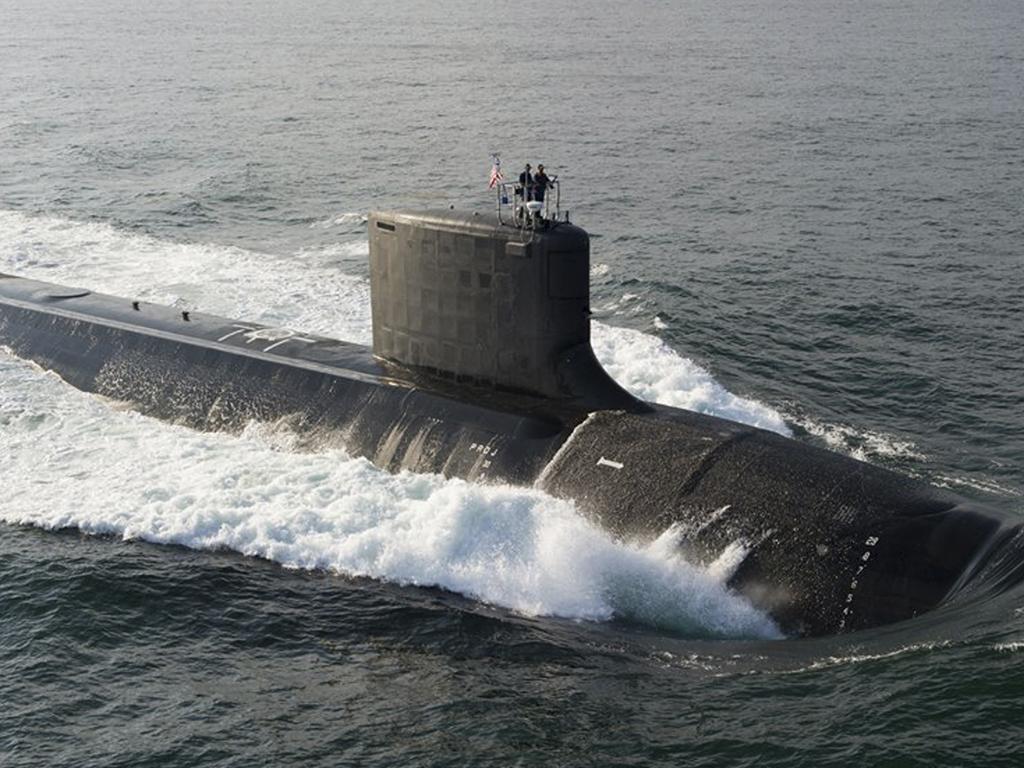


This week Beijing has been threatening Taiwan with war, as it sends more than 50 jet fighters a day into Taiwan’s air space, forcing the Taiwanese to respond with their own air force. The incursions have included Chinese nuclear-capable bombers. If Beijing ever decides to attack Taiwan directly, it will be impossible, at the start, for Taiwan to know whether an attack is beginning or Beijing is just engaging in another round of intimidation.